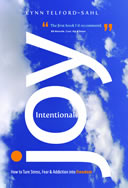Money Fears – 4 Tips for How to Accept, Release & Feel Better Now!
 Monday, December 19, 2011 at 7:23AM
Monday, December 19, 2011 at 7:23AM  1 Comment
1 Comment Psychology Today contributor Joan DiFuria, who writes a column called Affluence Intelligence, states that in 2000 Silicon Valley was birthing 64 millionaires a day. Today? Not many. A decade ago, we were so affluent that a new term “Sudden Wealth Syndrome” was coined. Yet, we also realized that wealth doesn’t necessarily make one happy. But as Woody Allen says, “It’s better than poverty.”
We’re just as obsessed with money these days, but it’s fear and anxiety about not having enough money. We have fear about losing our job, fear about ever finding a job again. Fear about paying the bills, and for some, fear about having enough to eat. And, of course this month, anxiety about Christmas!!
Fear is as much a contagion as the flu. It spreads through the air getting absorbed through the pores of the skin and inhaled into the lungs. Before you know it, the anxiety of those around you has permeated your world. Their worry becomes your worry. Every time the news broadcasts a new financial disturbance in the world, it adds to your sense of pending doom. You may feel disoriented, off-center, unsure of yourself. What can you do?
the pores of the skin and inhaled into the lungs. Before you know it, the anxiety of those around you has permeated your world. Their worry becomes your worry. Every time the news broadcasts a new financial disturbance in the world, it adds to your sense of pending doom. You may feel disoriented, off-center, unsure of yourself. What can you do?
First, realize that fear is an emotion fueled by our thoughts. It’s not necessarily the truth. We either increase the power fear has over us by focusing on it and following the awful spiral downward or we use strategies to break the cycle and support more neutral or positive thinking. Rick Hanson, author of The Buddha Brain states that the brain is Velcro for negative thoughts and Teflon for positive. By its very nature, the way we think tends to be negative and critical. So, let’s give ourselves a break and take action to feel better.
Here are 4 Strategies I use and teach to shift to quickly feel better. 1) First, just acknowledge the feeling briefly. “I’m angry, sad, depressed, etc.” 2) Breathe INTO the feeling with an attitude of “Come on in,” for about 90 seconds. Jill Bolte Taylor, PhD, a neuroscientest who rebuilt her brain after a stroke, "says it takes only 90 seconds of feeling the emotion caused by a negative event before the body finishes processing its stress.” 3) Re-focus your thoughts onto more positive events and this is  where the old “What are you grateful for comes in.” List 3 things you’re grateful for. And, this is my favorite: 4) Laugh – for 90 seconds. Come on – In the car or when you get up in the morning. You’ll probably start off feeling like a dork, but try it, you’ll be amazed. None of these strategies change the situation you’re facing, but they change how you feel and think so you can cope better!!
where the old “What are you grateful for comes in.” List 3 things you’re grateful for. And, this is my favorite: 4) Laugh – for 90 seconds. Come on – In the car or when you get up in the morning. You’ll probably start off feeling like a dork, but try it, you’ll be amazed. None of these strategies change the situation you’re facing, but they change how you feel and think so you can cope better!!
 Lynn Telford-Sahl tagged
Lynn Telford-Sahl tagged  jill bolte taylor,
jill bolte taylor,  millionaires,
millionaires,  money fears,
money fears,  money stress,
money stress,  obsessed with money,
obsessed with money,  psychology today,
psychology today,  rick hanson,
rick hanson,  silicon valley,
silicon valley,  woody allen
woody allen

























